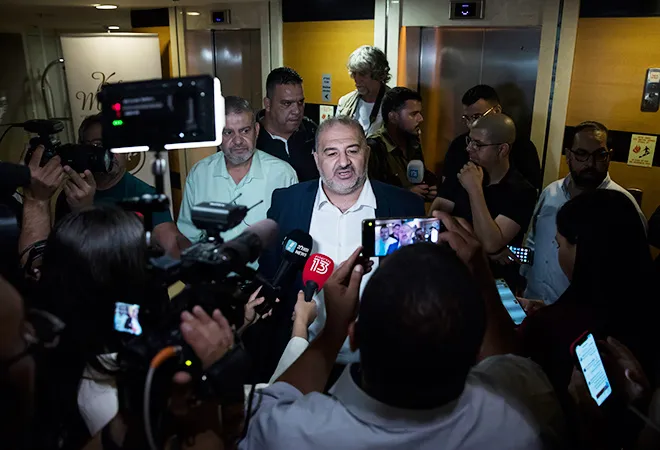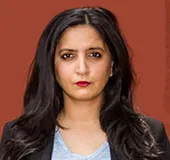
In early May, as the Israeli police stormed into the Al Aqsa mosque ostensibly to control stone pelters, many political pundits called it the worst mistake of the Netanyahu government, who had hitherto been seen as averse to conflict. Many others, however, alluded that it was deliberate, intended to scupper coalition talks between Netanyahu’s opposition and an Arab party to ensure his political survival. Benjamin Netanyahu has been Prime Minister of Israel for a dozen years—the longest-serving Israeli prime minister in the country’s history.
If the recent clashes were the result of a bad decision taken by Netanyahu or his administration, then that mistake has tarnished his legacy. He would be remembered for the bombings, which killed 66 Palestinian children, did not defeat Hamas, and instead increased sympathy for Palestinians in the US. If it was a political ploy then it certainly failed to sustain his reign.
If the recent clashes were the result of a bad decision taken by Netanyahu or his administration, then that mistake has tarnished his legacy. He would be remembered for the bombings, which killed 66 Palestinian children, did not defeat Hamas, and instead increased sympathy for Palestinians in the US. If it was a political ploy then it certainly failed to sustain his reign.
Over the last two years, Israelis have cast their ballot four times but without giving a clear majority to any party. On March 23, Netanyahu’s Likud party emerged as the largest party in the Knesset, Israel’s parliament, but it did not have 61 seats, required to form a government. An opposition comprising of right-wing nationalist Naftali Bennett, centrist Yair Lapid, and Arab Palestinian leader Abbas, is now set to dethrone Netanyahu and form a new government in Israel. Bennett, once Netanyahu’s defense minister and long seen as his main challenger, is set to be the next Prime Minister of Israel in a power-sharing agreement with Lapid. The centrist Yesh Atid party is the second-largest party in the Knesset with 17 seats. But Bennett, a man who has vehemently backed the illegal Israeli settlements inside occupied Palestinian Territories and called for the annexation of the West Bank, also joined hands with a representative of Palestinians in Israel—Mansour Abbas. Forty-seven-year-old Abbas heads the United Arab List or UAL, which is now set to become the first party of Palestinian citizens of Israel to be a part of a governing coalition in Israel instead of merely sit in opposition.
Hanan Ashrawi, a former member of the executive committee of the Palestine Liberation Organisation, tweeted her response to the formation of an anti-Netanyahu coalition shedding light on the systemic issues in Israeli policies. “The end of the Netanyahu era still contains within it built-in systems of racism, extremism, violence & lawlessness + expansionism, annexation & lawlessness,” she wrote on June 2. “His former cohorts will maintain his legacy. It's up to the diminished progressive forces to challenge & change this legacy.”
Mansour Abbas’s decision to join the government has understandably made many Palestinians unhappy. Some described him as an opportunist, others as naive but almost no one believes his presence in the government would be able to bring Israel closer to resolving the protracted dispute through a political dialogue. Hamas, the Palestinian political group and militia based in Gaza, slammed Abbas for joining an Israeli government, and one led by Bennett, whom experts often also described as an ultranationalist. “The new coalition will be more radical than the previous right-wing coalition,” Mousa Abu Marzouq, deputy chief of Hamas' politburo, said. “Abbas Mansour represents no one but himself.”
On his part, Mr Abbas says that he is determined to use a political path and inclusion in the legislative process to do better for Palestinians who live inside Israel. He hopes to improve the lives of Palestinians who complain of discrimination, neglect, and inequality inside Israel. “We decided to join the government in order to change the balance of political forces in the country,” Abbas said, after he signed the coalition agreement with Bennett and Lapid. He added that he has managed to secure the allocation of more than 53 billion shekels, which is about US $16 billion, to fight violent crime and improve the infrastructure of neigbourhoods inhabited by Palestinians. UAL’s agreement with Bennett reportedly also includes a freeze on the demolition of Palestinian homes built without permits and recognition of Bedouin towns in the Negev Desert in southern Israel.
Much of the apprehensions against the inclusion of a Palestinian party are valid and yet it isn’t useful to discard the possibilities that may arise out of its presence in government. Abbas’s UAL will sit in the Knesset on four seats while Bennett’s Yamina party is not far ahead with seven
Much of the apprehensions against the inclusion of a Palestinian party are valid and yet it isn’t useful to discard the possibilities that may arise out of its presence in government. Abbas’s UAL will sit in the Knesset on four seats while Bennett’s Yamina party is not far ahead with seven. The UAL would hold together a tenuous coalition and have a say in the parliament. Surely, it would get a chance to push for equal rights for Palestinians inside Israel and begin the process of changing the discourse very much needed not only for the benefit of Palestinians but also Israeli democracy.
The views expressed above belong to the author(s). ORF research and analyses now available on Telegram! Click here to access our curated content — blogs, longforms and interviews.




 PREV
PREV


